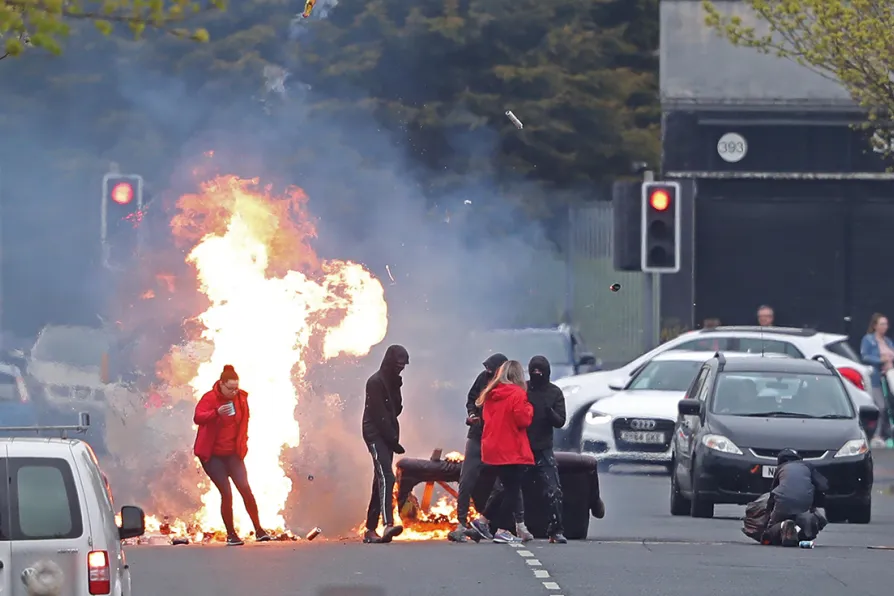As tens of thousands return to the streets for the first national Palestine march of 2026, this movement refuses to be sidelined or silenced, says PETER LEARY

 BREAKDOWN: Loyalist rioting on the Shankill Road earlier this year
BREAKDOWN: Loyalist rioting on the Shankill Road earlier this year
TODAY is the centenary of the partition of Ireland. This brutal act was accompanied — as became routine with Britain’s slow-burn crisis of imperial rule as its colonial subjects sought national liberation — with great violence.
How Ireland became a colony of the British crown is a story of savagery and theft. The Plantation of Ulster — the most Gaelic part of the island — was carried out in the reigns of Henry VIII, Elizabeth I and James I (VI of Scotland), and the working out of this tragedy of avarice has reached the present crisis in the reign of the second Elizabeth.
The new settlers, who largely forced the existing occupants from their land, were mostly required to be English-speaking, Protestant and loyal to the crown. The invasion was not confined to the Northern province of Ulster but it was in this part of the Irish mainland where it was most thoroughly instituted by the occupation authorities.

A new group within the NEU is preparing the labour movement for a conversation on Irish unity by arguing that true liberation must be rooted in working-class solidarity and anti-sectarianism, writes ROBERT POOLE

Once again, our broad-based coalition outnumbered the anti-migrant protest in Faversham, but tackling the sentiment behind this wave of anger requires explaining the real reasons pushing millions into leaving their homelands, argues NICK WRIGHT












